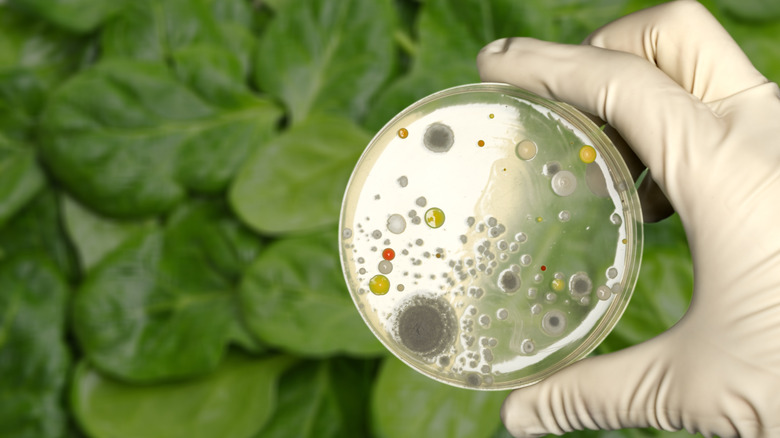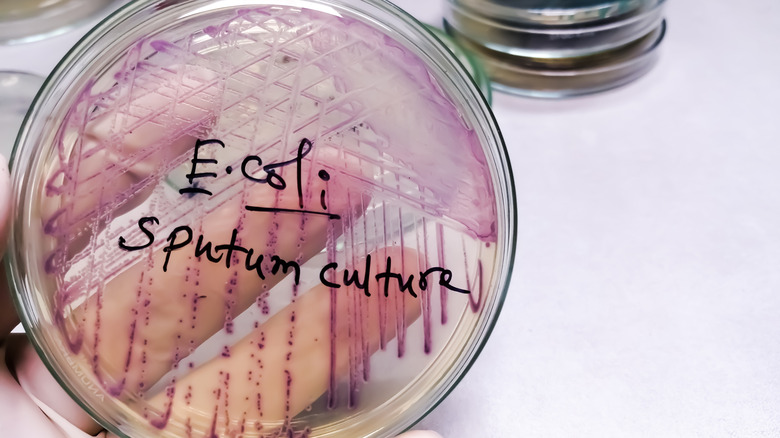The Reason Some Fruits And Vegetables Are Often Contaminated With E. Coli
With recent news of fast food chains like McDonald's removing onions tainted with E. coli, it's easy to be worried about what might be growing on your groceries. You shouldn't be, because the majority of foods on store shelves are safe enough to eat, but certain types of produce can be especially vulnerable, and it can be useful to stay aware of that.
Lettuce or spinach have appeared at the center of outbreaks in the past, and there's some evidence for why it's these specific leafy greens. This is partly because they're crops exposed directly to soil that could be contaminated (which applies to most crops, to be fair), and more specifically because they're often eaten raw. Properly cooking food kills harmful bacteria like E. coli, and leafy greens like cabbage, broccoli, and collards are less associated with outbreaks because we cook them more often. Meanwhile, lettuce and spinach go straight into salads, or onto burgers after the patty's already been cooked, and E. coli can be very difficult to wash off leafy green veggies.
This isn't to say that all leafy greens are dangerous nor that other produce is always safe. Pre-cut fruits and veggies also have a higher contamination risk because they don't have peels to protect them during handling.
How E. coli spreads to leafy greens
The most dangerous forms of E. coli thrive in the intestines of animals, especially livestock like cattle or goats. Unpleasant though it may be, E. coli typically spreads when food or water comes into contact with feces. This often doesn't happen directly — instead, it spreads to food when somebody handles it without properly washing their hands or practicing proper hygiene at some stage during the food's processing. In larger outbreaks, it can mean the food was grown in soil exposed to (or even irrigated with) water tainted by infected animal feces. The soil can be contaminated by exposure to nearby farms or facilities with infected animals.
From there, the bacteria survives until it reaches the restaurant or grocery store, and people get food poisoning which, at worst, can include life-threatening symptoms. There are other ways it can end up on your vegetables or fruits, however. If you're chopping your raw meat and vegetables on the same cutting board without washing it in between, for example, you're taking a huge risk; cooking can protect you from the meat, but you've cross-contaminated anything else that has touched that surface. Sanitize, cook what you can, and make sure you're handling produce with clean water, especially when you're camping.

